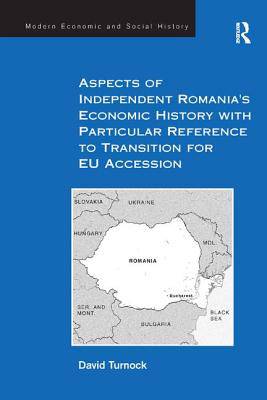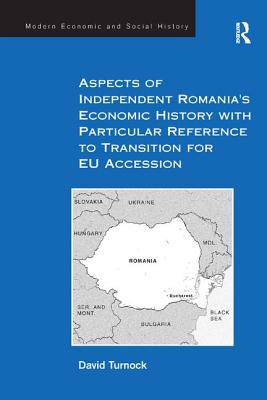
- Retrait gratuit dans votre magasin Club
- 7.000.000 titres dans notre catalogue
- Payer en toute sécurité
- Toujours un magasin près de chez vous
- Retrait gratuit dans votre magasin Club
- 7.000.000 titres dans notre catalogue
- Payer en toute sécurité
- Toujours un magasin près de chez vous
Aspects of Independent Romania's Economic History with Particular Reference to Transition for EU Accession
David Turnock
67,95 €
+ 135 points
Format
Description
After fifteen years of transition in the former communist states of Central and Eastern Europe it has become clear that for a substantial number the objective of reform and restructuring process is a market system in line with membership of the EU. In this study the long term economic transformation of Romania is studied, offering a detailed narrative and thematic account of events from the nineteenth to the twenty-first centuries. From the first steps towards large scale industrialisation begun prior to the First World War, through the accelerated pace set by the communist regime after 1945 and the uncertainty following its subsequent collapse in 1989, the book addresses a wide range of pertinent issues that have shaped Romania's economic development. The study also offers an interpretation of a distinctive phase in the modernisation of post-communist Romania, supported by economic-historical surveys of the proceeding century as a context for recent restructuring on the eve of EU accession. This is linked with trends in the region as a whole so that a broad perspective is maintained throughout the book. By highlighting Romania's position as one of more backward accession states and considering in what ways its experience during transition differs from the more developed states of the region, this study offers a valuable insight into both the history of Romania, and its future prospects. Furthermore it provides a valuable case study that can be compared and contrasted with other countries who are likewise still grappling with the legacy of a centralised economy, and in the process of adopting a more market orientated approach in order to gain EU membership. As such this study will be of interest not only to historians and economists, but anyone with an interest in the expansion of the European Union.
Spécifications
Parties prenantes
- Auteur(s) :
- Editeur:
Contenu
- Nombre de pages :
- 320
- Langue:
- Anglais
- Collection :
Caractéristiques
- EAN:
- 9781138259638
- Date de parution :
- 11-11-16
- Format:
- Livre broché
- Format numérique:
- Trade paperback (VS)
- Dimensions :
- 156 mm x 233 mm
- Poids :
- 452 g







